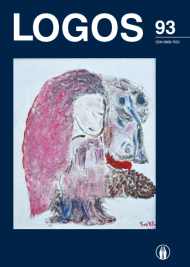Logikos epistemologinė ir politinė reikšmė Alfarabijaus filosofijoje
The Epistemological and Political Significance of Logic in Al-Fārābī‘s Philosophy
Author(s): Ernestas JančenkasSubject(s): Epistemology, Logic, Middle-East Philosophy
Published by: Visuomeninė organizacija »LOGOS«
Keywords: logic; Analytica Posteriora; Al-Fārābī; classical Arab philosophy;
Summary/Abstract: The paper seeks to present the significance which Al-Fārābī assigned to the study of the Organon and especially to the Analytica Posteriora which occupied the center-stage in the philosopher’s epistemology. The study draws on the famous story, Fī Z. Uhūr al-falsafa, whose authorship is ascribed to Al-Fārābī. Moreover, the utmost importance of Analytica Posteriora and the apodictic argument which is also gleaned from other Al-Fārābī treatises, especially his Ih. s.ā` al-‘ulūm, a treatise which presents Al-Fārābī’s understanding of the hierarchy of sciences. Moreover, by employing the famous discussion between Abū Bišr and As-Sīrāfī, the paper shows as that philosophers’ claims about logic being the only tool to gaining infallible knowledge caused a controversy in the intellectual circles of the Abbasid empire. This was mainly due to its political implications. Even though grammar was an indispensable tool for the fuqahā` in their dealings with legal documents, and hence a science indispensable for the government, the philosophers saw themselves as the true elite. They were the only ones actually fit to rule. As the paper shows this claim rested mainly on their mastery of Aristotelian logic, especially the Analytica Posteriora.
Journal: LOGOS - A Journal of Religion, Philosophy, Comparative Cultural Studies and Art
- Issue Year: 2017
- Issue No: 93
- Page Range: 201-216
- Page Count: 16
- Language: Lithuanian

